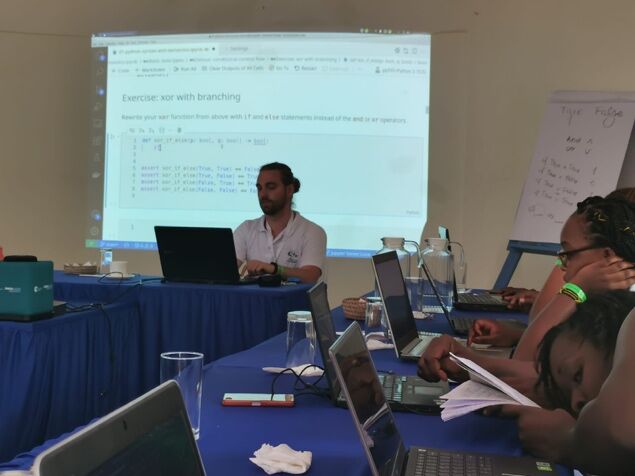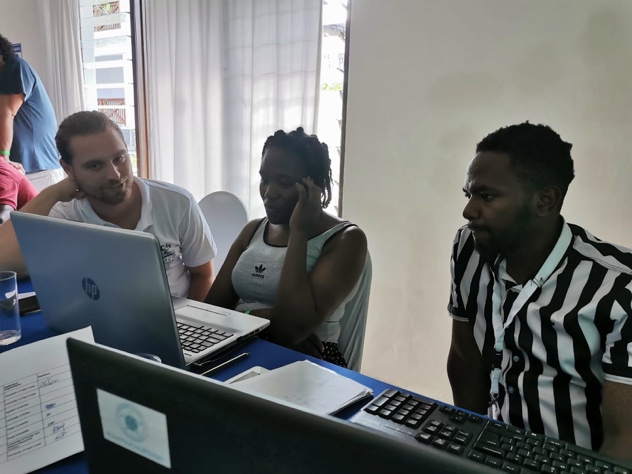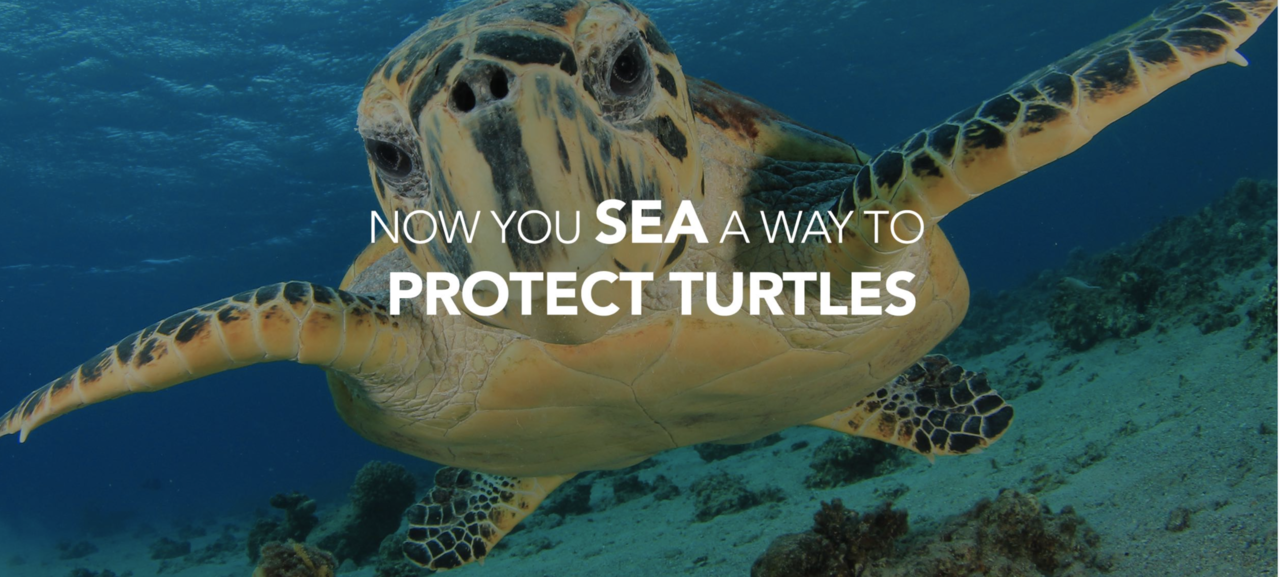Marvin van Aalst (photo) and Tobias Pfennig from QTB are on a trip to Africa to teach programming in different workshops. The WATAMU Summerschool is a cooperation project with the Institute for Computational Life Science of RWTH Aachen University under the direction of junior professor Anna Matuszyńska. The village of Watamu is located on the coast of Kenya in East Africa and is home to, among others, the animal and wildlife park "Turtle Watch" https://localocean.co/ ,which specializes in the protection of turtles. The QTB colleagues will introduce the participants to the Python programming language. In addition to programming basics, various tips and tricks are shown to develop optimal, as well as efficient software modules. In particular, different mathematical models as well as data processing/analysis methods are introduced, which are to be adapted by the participants to the local research questions. With the help of data analysis and mathematical modeling, the marine ecology research questions should be focused more efficiently in the future, in order to support local environmental protection more strongly.
Core competencies for postdoctoral fellows and young scientists
An academic career can have very diverse goals, which can be pursued individually depending on one's interests. To obtain a university professorship, both a strong interest in research and a passion for teaching are prerequisites for achieving this career goal. In addition to the professional requirements, the young scientists should also have additional key qualifications that support their everyday research work.
The Faculty attaches particular importance to the continuous training of young scientists and the qualified supervision of doctoral candidates. Applicants for admission to habilitation must provide evidence of at least four continuing education courses on core competencies for young scientists and university teachers. Participation in further training to ensure good scientific practice is mandatory.
WATAMU Summer School
Marvin van Aalst (photo) and Tobias Pfennig from QTB are on a trip to Africa to teach programming in different workshops. The WATAMU Summerschool is a cooperation project with the Institute for Computational Life Science of RWTH Aachen University under the direction of junior professor Anna Matuszyńska. The village of Watamu is located on the coast of Kenya in East Africa and is home to, among others, the animal and wildlife park "Turtle Watch" https://localocean.co/ ,which specializes in the protection of turtles. The QTB colleagues will introduce the participants to the Python programming language. In addition to programming basics, various tips and tricks are shown to develop optimal, as well as efficient software modules. In particular, different mathematical models as well as data processing/analysis methods are introduced, which are to be adapted by the participants to the local research questions. With the help of data analysis and mathematical modeling, the marine ecology research questions should be focused more efficiently in the future, in order to support local environmental protection more strongly.
WATAMU Summer School
Marvin van Aalst (photo) and Tobias Pfennig from QTB are on a trip to Africa to teach programming in different workshops. The WATAMU Summerschool is a cooperation project with the Institute for Computational Life Science of RWTH Aachen University under the direction of junior professor Anna Matuszyńska. The village of Watamu is located on the coast of Kenya in East Africa and is home to, among others, the animal and wildlife park "Turtle Watch" https://localocean.co/ ,which specializes in the protection of turtles. The QTB colleagues will introduce the participants to the Python programming language. In addition to programming basics, various tips and tricks are shown to develop optimal, as well as efficient software modules. In particular, different mathematical models as well as data processing/analysis methods are introduced, which are to be adapted by the participants to the local research questions. With the help of data analysis and mathematical modeling, the marine ecology research questions should be focused more efficiently in the future, in order to support local environmental protection more strongly.
WATAMU Summer School
Marvin van Aalst (photo) and Tobias Pfennig from QTB are on a trip to Africa to teach programming in different workshops. The WATAMU Summerschool is a cooperation project with the Institute for Computational Life Science of RWTH Aachen University under the direction of junior professor Anna Matuszyńska. The village of Watamu is located on the coast of Kenya in East Africa and is home to, among others, the animal and wildlife park "Turtle Watch" https://localocean.co/ ,which specializes in the protection of turtles. The QTB colleagues will introduce the participants to the Python programming language. In addition to programming basics, various tips and tricks are shown to develop optimal, as well as efficient software modules. In particular, different mathematical models as well as data processing/analysis methods are introduced, which are to be adapted by the participants to the local research questions. With the help of data analysis and mathematical modeling, the marine ecology research questions should be focused more efficiently in the future, in order to support local environmental protection more strongly.




